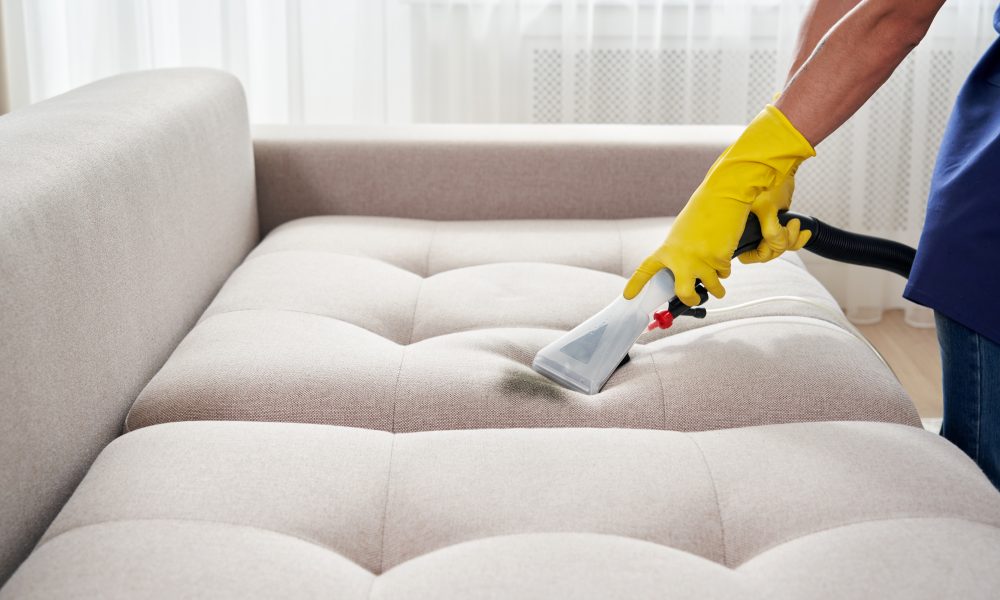
“Without a doubt, the pandemic has made the job of property managers harder. There’s an increased emphasis, quite rightly, on standards and cleanliness, and many managers have felt the brunt of a heavier workload. Efficient task management and work coordination have become essential, and help operators best manage time, save money, and ensure quality.”
– Jeremy Gall, Founder & CEO of Breezeway
The pandemic led some vacation rental companies to take their cleaning and maintenance game to a higher level – even more so that some would have thought. Simply installing sanitation stations at the entryways was not enough.
Eddie Gray of Newman-Dailey Resort Properties, Miramar Beach, Fla., and Jessie Sharp of Park City Rental Properties in Utah discussed what it’s been like for their teams during Breezeway’s Elevate Operations Conference hosted held March 10-11.
Health-conscious guests looked at everything with a closer eye and weren’t bashful about speaking up. Gray estimated that resident service-request demand increased by about three-fold.
“Most requests were related to the kitchen and towels,” Gray said. “The pots and pans in the cabinets were used far less than usual. [Based on their sanitation concerns], if there was a scratch on a ceramic pan, the guest would call to have it replaced. If there were watermarks on the silverware, they were concerned and things would need to be rewashed. If there was a small spill mark on the floor, they would ask us to clean the entire floor.”
He said requests for air fryers like Insta-Pot also were popular.
For service calls, Gray’s team went out of its way to arrive within 30 or 40 minutes for every call, whereas pre-Covid, those trips would usually be handled within a few hours (unless it was an emergency).
Sharp’s team, during vacancies, focused on general repairs and upgrades to things such as furniture. “Everything had to be kept in perfect condition,” Sharp said. “By making sure we achieved this, we didn’t have to return to the vacation home later to fix anything, that way, we limited our time at the properties, and the guests appreciated that [given social distancing considerations].
“If we did have to visit the home, we made sure the guests knew we were coming. Guests asked a lot of questions about when we’d arrive, what we were doing and how long it would take. In a way, this helped us to be more transparent about their entire experience.”
Coming and Going
Sharp said, generally, her properties had longer stays and shorter notices for bookings. Planning for arrival and departure was another keen focus.
“We’d check with guests about when their flights into Salt Lake City were arriving, and that gave us better timing on choosing which homes to turn first, based on arrivals,” she said.
Gray moved his checkout time from 10 a.m. to 9 a.m. to give his staff more time to do laundry and turns. By using a smart access system, it helped his team know when guests checked out. So, if they left early, at 6:30 or so, they could get started on that home right away and not have to wait until 9 a.m.
He said the properties’ bookings generally were shortened from 7-day stays to 3- or 4-day stays. “This created more maintenance and cleaning upkeep work for us, but it made the owners more money,” Gray said. “We had to add an evening crew for laundry so that we’d be able to maintain our turns on time the next morning.”
The heightened emphasis on cleanliness potentially led to employee stress and burnout. Gray said to help boost morale and peace of mind, he emphasized teamwork. “Keeping things to that high of a cleaning standard can be stressful, so we didn’t send just one employee to do the job and feel all that stress on their shoulders, we worked in pairs or more.”
Sharp said she helped maintain positive attitudes among its staff regularly sharing all the positive feedback about service that her company received in guest or online reviews, also posting them in its weekly newsletters.
Wash, Rinse, Repeat
For laundry services, bedding was the primary focus. In the past, owners might have used unique bedding in rooms as a nice touch, but a shift was made to standardized bedding property-wide.
“We washed bedspreads and all sheets daily as an indication that we cared about cleanliness,” Gray said. “As for unifying the bedspreads, we looked into what other operators were doing in our area and it seemed that about 90 percent were doing the same thing.”
Gray said his company intends to keep all of its 2020 cleaning policy changes in 2021, post-Covid, because it benefitted from them in 2020.
>> Original Article: VRM Intel












RSS